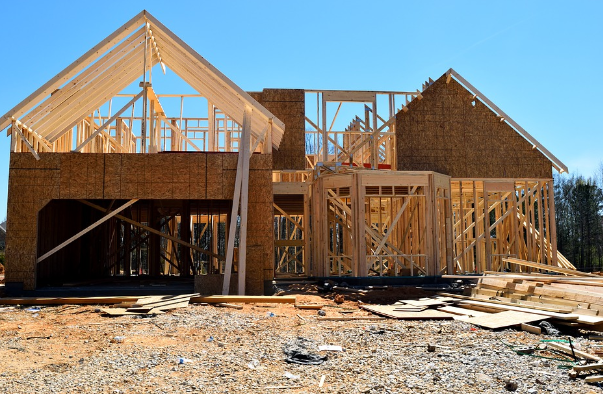Building the Future: Advantages of Wood Frame Construction

Building the Future: Advantages of Wood Frame Construction
Wood frame construction has emerged as a preferred choice for builders and homeowners alike, offering a range of benefits that make it an attractive option for modern construction. From its cost-effectiveness to its environmental sustainability, the advantages of wood frame construction are compelling and worth exploring.
The Cost-Effective Advantage of Wood Frame Construction
One of the primary advantages of wood frame construction is its affordability. Compared to other building materials, such as concrete or steel, the materials used in wood frame construction, like lumber and plywood, tend to be less expensive. This cost-effectiveness extends to the construction process itself, as wood frame buildings can often be erected more quickly, reducing labor costs and accelerating the overall timeline.
Additionally, the lightweight nature of wood frames means that heavy machinery, such as cranes, are not always necessary during the construction process, further lowering the overall cost. This flexibility in construction methods can be a significant advantage, especially for projects with tight budgets or in areas with limited access.
- Unparalleled Design Flexibility
Wood frame construction offers remarkable design versatility, allowing architects and homeowners to create unique and visually appealing structures. The lightweight nature of wood enables the construction of intricate and customizable designs, giving builders the freedom to explore a wide range of architectural styles and features.
This design flexibility extends to future renovations and modifications, as the non-load-bearing walls in wood frame construction can be easily altered without compromising the structural integrity of the building. This allows homeowners to adapt their living spaces to changing needs and preferences over time, making wood frame construction a practical and long-term solution.
- Exceptional Energy Efficiency
Wood frame construction is renowned for its energy-efficient properties, making it an attractive choice for homeowners and builders alike. The inherent insulating qualities of wood help maintain comfortable indoor temperatures, reducing the need for extensive heating and cooling systems and leading to lower energy costs.
Furthermore, the ease of installing insulation materials in wood frame structures contributes to their overall energy efficiency.This not only benefits the homeowner through reduced utility bills but also aligns with the growing emphasis on sustainable and environmentally-conscious construction practices.
- Sustainable and Environmentally-Friendly
Wood, as a renewable resource, is a natural choice for those seeking to minimize the environmental impact of their construction projects. Through responsible forestry management practices, the timber used in wood frame construction can be harvested and replanted, ensuring a continuous supply without causing significant harm to our natural ecosystems.
- Durability and Longevity
While wood frame construction is often associated with affordability and design flexibility, it is also known for its durability and longevity. Properly maintained wood frame structures can last for decades, if not centuries, providing homeowners with a long-lasting and reliable investment.
The strength and resilience of wood frames make them highly resistant to adverse weather conditions, such as high winds and earthquakes, ensuring the safety and stability of the structure. This durability is further enhanced by the use of modern framing techniques and materials, such as structural insulated panels (SIPs), which offer even greater strength and energy efficiency.
The Role of Framing Contractors
- Achieving the full benefits of wood frame construction often requires the expertise of experienced framing contractors. These professionals bring a wealth of knowledge and experience to the table, ensuring that the construction process is executed efficiently and to the highest standards.
- Framing contractors play a crucial role in managing the supply chain, ensuring that materials are delivered to the site precisely when they are needed, reducing the risk of delays or material spoilage. They also provide valuable guidance on design considerations, helping homeowners and architects maximize the potential of wood frame construction.
- Moreover, framing contractors are skilled in supervising the construction process, minimizing the chances of delays and ensuring that the project stays on track. Their expertise in wood frame construction techniques, such as the use of prefabricated components, can further enhance the speed and cost-effectiveness of the building process.
Conclusion
Wood frame construction has emerged as a compelling choice for builders and homeowners, offering a unique blend of cost-effectiveness, design flexibility, energy efficiency, and environmental sustainability. From its affordability and ease of construction to its long-lasting durability and positive environmental impact, the advantages of wood frame construction are undeniable.
